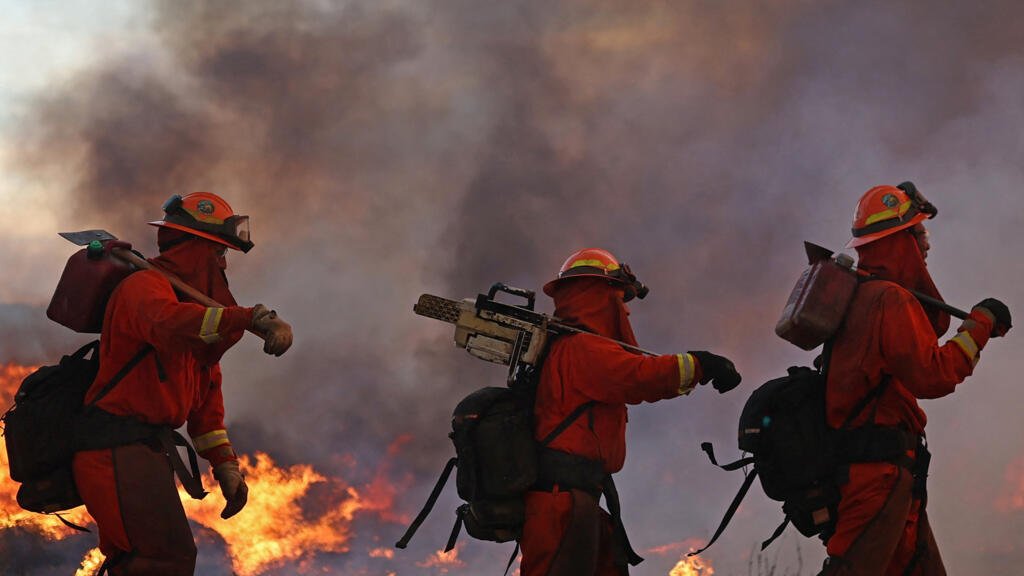
Israeli security forces and settler groups have launched attacks against Palestinians in the occupied West Bank since a ceasefire between Israel and Hamas came into effect on Sunday.
Settler attacks broke out almost immediately after the ceasefire began, with attacks by members of the Israeli far-right reportedly targeting some villages where released Palestinian women and children prisoners live. Other Palestinian homes also appeared to be targeted at random.
Separately, the Israeli military launched an operation called “Iron Wall” in the city of Jenin and the adjacent Jenin refugee camp.
The military attack occurred in weeks-long raid Palestinian Authority (PA) security forces attacked local Palestinian militants in the Jenin refugee camp in what was defined as an attempt to restore law and order but seen by many Palestinians as a crackdown on independent Palestinian armed groups resisting the Israeli occupation.
How many people were killed?
Israeli military attacks on Jenin have killed 12 people, 10 in attacks that swept across Jenin province on Tuesday and two in attacks on Wednesday night.
It was unclear how many of Tuesday’s dead were civilians, but a Palestinian Authority statement said Israeli forces “opened fire on civilians and security forces, injuring several civilians and several security personnel.” The Palestinian Authority added that at least 35 people were injured.
Wednesday’s death occurred in the town of Burqin, west of the city of Jenin. Palestinian news network Quds Today reported that Mohammed Abu Assad and Qutaiba Chalabi were killed “during armed clashes with (Israeli) occupying forces.” The armed wing of Hamas said the two men were members of Hamas, but the Israeli military said they were affiliated with the Palestinian Islamic Jihad (PIJ).
Meanwhile, at least 21 Palestinians have been injured in attacks by Israeli settlers in the West Bank since the ceasefire began on Sunday.
Where does the violence occur?
Settler violence appears to be concentrated in at least six villages: Sinjil, Turmus Aya, Ein Siniya and al-Lubban Ashaqiya (near Ramallah), and Funduq and Jinsafut (both near Nablus). The six villages were identified as home to women and children released by the Israeli government as part of the ceasefire, The Guardian reported.
In the city of Jenin, troops surrounded a government-run hospital and a nearby refugee camp, reportedly ordering the evacuation of hundreds of people. Israeli Defense Minister Israel Katz described Jenin’s actions as “Shift in security strategy”. He said the effort was part of Israel’s military plans for the occupied West Bank and was “the first lesson learned from the pattern of repeated attacks in Gaza.”
The Palestinian Red Crescent Society (PRCS) said the Israeli military prevented it from accessing the wounded and dead bodies.
Dozens of military checkpoints and barriers The installations were erected across the West Bank, leading to tailbacks of civilians that lasted six to eight hours.
Has Jenin been targeted before?
Indeed.
Israel has Iran has long been accused of sending weapons to Jenin armed groups Especially its refugee camps. Jenin has long been a hotbed of Palestinian resistance, and the growth of the independent armed group the Jenin Brigades is particularly worrying for Israel.
In December, the Palestinian Authority reportedly launched the largest and most violent confrontations with armed groups in the West Bank since Gaza was expelled by Hamas in 2007.
Many analysts believe Positioning itself as the natural manager of post-war Gazathe Palestinian Authority has been accused of copying tactics used by the Israeli army in past attacks on Jenin and elsewhere: surrounding the camp with armored personnel carriers, shooting indiscriminately at civilians, summarily detaining and torturing young people, and cutting off the area water and electricity supplies. civilians inside.
The Palestinian Authority attack follows multiple attacks by Israeli forces on Jenin. Al Jazeera reporter Shireen Abu Akleh Killed by Israel in one such attackMay 2022.
In July 2023, before the war in Gaza broke out, Israel targeted Jenin. In that attack, Israeli troops 12 people died and many were injured 100 people were killed, one of the worst casualties since the infamous military campaign in 2002 during the second intifada. fifty-two Palestinianshalf of whom were civilians, and 23 Israeli soldiers who carried out the attack were killed in that attack.
Amnesty International and Human Rights Watch both accused Israel of committing war crimes in the 2002 attack.
Is this the latest violence over the ceasefire in Gaza?
Yes and no.
While the bulk of the Israeli army’s forces are occupied in Gaza and Lebanon, Israeli settlers have waged one of the most violent years on record in the West Bank.
“The ceasefire is not enough for the Israelis,” Murad Jadallah of the human rights group Al-Haq said in Ramallah, West Bank. “The hostage deal did not feel like the victory they promised,” he added, saying the clearly disappointing consequences were now playing out in the West Bank and Jenin after more than 47,000 people died.
Overall, according to Statistics from the United Nations Office for the Coordination of Humanitarian Affairs (OCHA)from October 7, 2023 (the day of the Hamas-led attack on Israel) to December 31, 2024, Israeli settlers carried out at least 1,860 attacks.
“This is not what a ceasefire looks like,” Shai Parness of Israeli human rights group B’Tselem told Al Jazeera. “Since Israel and Hamas announced a temporary ceasefire in the Gaza Strip and reached an agreement to release hostages and prisoners, Israel has intensified its violence against Palestinians in the West Bank.”
Parnes added: “Rather than opening fire on Palestinians, Israel’s actions demonstrate that it has no intention of doing so. Instead, it is simply shifting its focus from Gaza to other parts of the West Bank it controls.”
What are Israel’s plans for the West Bank?
Factors such as the far-right composition of the Israeli government and the rise to power of overwhelmingly pro-Israel U.S. President Donald Trump portend difficult times ahead for the West Bank.
Although Trump’s predecessor, President Joe Biden, explicitly supported Israel’s war on Gaza, 47,283 people have died so farThe Biden administration has expressed concern about unbridled violence by settlers in the West Bank, which it believes has the potential to destabilize the region.
But Trump’s lifting of the Biden administration’s sanctions on settlers has provided a first glimpse into what many within Israel’s far right hope for – a more lenient U.S. policy toward settler ambitions in the West Bank.
Inside Israel, Prime Minister Benjamin Netanyahu finds himself facing a right-wing insurgency, with ultra-nationalist National Security Minister Itamar Bengvir resigning from Netanyahu’s coalition cabinet over the ceasefire agreement. Finance Minister Bezalel Smotrich, who has made no secret of his ambition to annex the West Bank, has remained in the government but has pledged to resign if a ceasefire in Gaza leads to an end to the war.
“Smotrich has more power and influence than ever before,” Jadallah said of the negotiations to keep Smotrich on the board.
“Ultimately, he wants to sideline Israel’s civil administration and allow the West Bank to be run entirely by settlers,” Jadallah added, detailing his vision for Israel’s early steps toward full annexation of the West Bank.
Evidence of this new approach to targeting the West Bank and its settlers had already become apparent before the ceasefire and Trump’s inauguration.
On Friday, Katz announced that all remaining settlers held in administrative detention, a process in which individuals are held indefinitely without charge, would be released. Administrative detention is used primarily for Palestinian detainees, although it has also been used for some Israelis before.
On the release of the settlers, Katz wrote in a statement that “the families of the Jewish settlers are better off than the families of the released terrorists,” referring to those released by Israel on Sunday as part of a ceasefire. Palestinian women and children.








